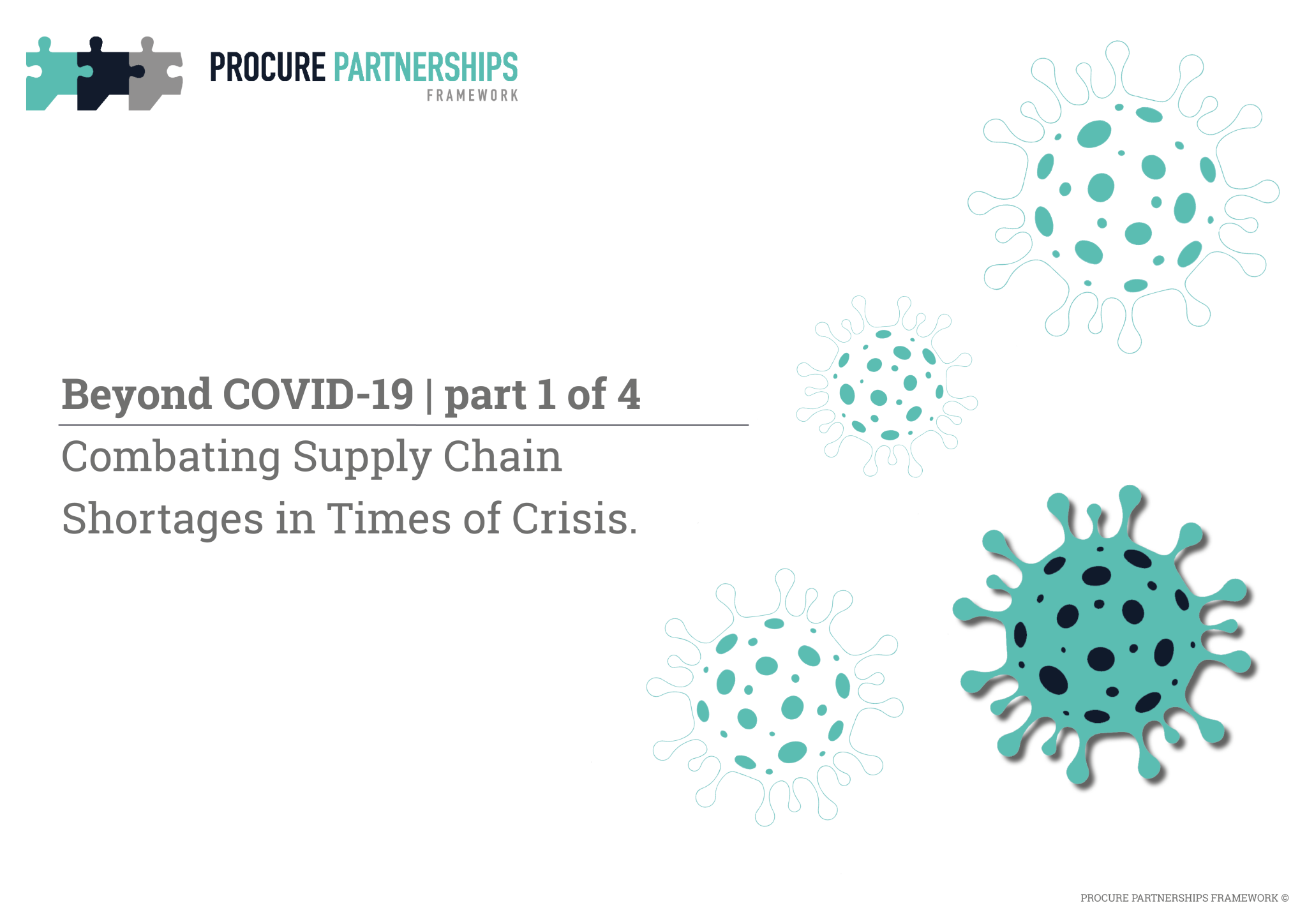The COVID-19 pandemic has impacted almost all sectors and industries globally, reminding us again of the reliance that organisations have on their supply chains. As social distancing restrictions are lifted and construction works ramp up, a key challenge to overcome will be around the sourcing of labour and materials. In this blog we take a look at how we can work together to alleviate supply chain pressures as the market restarts, helping to keep projects running efficiently and enabling our customers to achieve their project goals.
A dramatic drop in construction output
The COVID-19 crisis hit the construction industry just as it was on the cusp of benefiting from a major influx of government spending. Early 2020 saw cautious optimism; the potential for a housebuilding revolution and a strategy to address the Net Zero climate change agenda was expected in the new, eagerly awaited National Infrastructure Strategy, which would foresee spending of £100bn.
The immediate impact of the March lockdown on construction was dramatic and within a matter of days there was a 90% drop in construction output. While construction sites were still allowed to operate, so long as they adopted the Public Health England guidelines, many major contractors began shutting down, concerned they could not effectively implement social distancing. In response, construction material producers and merchants reduced their production capacity or suspended activities entirely. Due to a shortage of materials and the closure of some projects, many specialist subcontractors also closed their doors and began to furlough staff.
We have already seen the unfortunate demise of some suppliers who have not been able to weather the storm or absorb the significant drop in cashflow despite government support. As construction activity ramps up again and sites reopen, this supply chain disruption is predicted to have a significant impact on logistics, distribution, the availability of skilled labour, and ultimately on productivity.
In their May COVID-19 Insight report, international consultancy and construction business Mace, declared the pandemic the “greatest global challenge in living memory”. The report goes on to state that “across the construction industry, supply chains have already been exposed to significant risks that will need to be effectively managed, monitored and mitigated to ensure that we have a sustainable industry in the short, medium and long term.”
This sentiment is also echoed by leading global design consultancy Arcadis, who state in their Supply Chain Resilience plan that, “As we look ahead to recovery, the resilience of supply chains will continue to be one of the major risks. Even in the midst of the crisis, it is vital that the industry acts now to implement resiliency measures that will preserve capacity and resources for the future, ensuring the best possible footing for recovery.”
The effect of the reduction in output on supply chain cashflow is likely to be severe and, as contractors and construction clients feel the impact of reduced cashflow, they in turn may choose to adjust their payment practices and pass the risk further down the supply chain. The priority must be to develop and implement measures to prevent businesses from failing in these circumstances.
Navigating a new way
Despite these challenges, the construction industry remains resilient, largely surviving the immediate impact of COVID-19 and slowly beginning to return to work. Our priority is to now consider how we can protect programmes of work and continue to deliver sustainable projects for the public sector. Keeping projects progressing on time and on budget in the current climate will require a totally new approach to supply chain management. A sudden loss of liquidity in a key supplier risks a negative impact on production and if clients, consultants and contractors do not come together to support the supply chain, we will see many supply chain partners struggle and fail.
So, what do we need to do to help regain the balance in the complex construction supply chain? We believe the following four important behaviours will be essential:
1. Collaborate and communicate to support recovery
In order to make a clear assessment of all the critical elements of the supply chain and to understand the risks and challenges associated with materials and labour shortages, it has never been more important to work collaboratively and to communicate successfully. If each part of the project team works separately it will be difficult to make a fair assessment of the potential supply chain challenges and the impact they have on project programmes and budgets.
Manufacturers, suppliers, subcontractors and contractors must coordinate efforts to ensure that potential delays associated with the supply of critical materials do not affect overall productivity and to help find solutions early before the impact is felt. Clients, contractors, and consultants should also carefully monitor supply chains to ensure that they are operating effectively and be quick to engage with the team to address potential issues. No single party should be working alone, and contractors and clients/developers must provide the strong leadership necessary to consider all the possible supply chain scenarios. A time of crisis warrants a united front and the opportunity to share lessons and best practice across projects to offer industry support, should not be underestimated.
2. Offer support to protect the supply chain
Brave leadership is required to support and safeguard the supply chain. Contractors, consultants and clients have a responsibility to work closely with strategic suppliers and help them withstand the short-term revenue disruption. It is vital that clients and contractors are willing to compromise and share the cost burden with their supply chains to help prevent significant delays and capacity loss, and to prevent short term price inflation. This support should include the proactive monitoring of the financial position of critical suppliers to provide flexible contract conditions and payment terms which will support supplier cashflow, and by offering suppliers clear and secure demand signals and advanced orders to help build confidence.
Building these strong, flexible relationships with suppliers will be an integral part of re-establishing work programmes.
3. Be proactive and flexible
Alongside working collaboratively, it is also essential that all members of the project team proactively look to find flexible alternative solutions to ensure programmes are achieved. This could include discussions around rescheduling work, de-scoping work, sourcing alternative materials if supply chain issues are foreseen, or considering the use of offsite manufacturing facilities to increase productivity.
These issues would need to be discussed and developed closely with customers and the entire project team, but a commitment to considering innovative solutions and a careful approach to risk management will increase the chances of an agreement being reached.
4. Plan for the future
We don’t know how long the current situation will last, or how the future will look. To ensure a resilient supply chain we need to understand the current barriers and plan carefully for the future. In their 8-step supply chain resilience plan, Arcadis advise carrying out “a whole-system approach to create strategic supply chain maps for critical programmes and spend categories.” These maps would be used to identify possible points of failure in the event of future crises and enable the careful management of different supply chain groups to mitigate risk.
Despite the uncertainty, one thing is certain; to mitigate future risk, the industry must act now to secure the supply chain and build strong, open relationships with partners to allow for business recovery. As we look ahead to a post COVID-19 reality, prioritising innovative approaches to procurement will help us to manage and balance the long-term risk that will inevitably become a new normal for our industry.
We would love to hear your thoughts and perspectives on these important issues, please use the comment function to get in touch

Robbie Blackhurst is the Founder and Director of Black Capital Group, the holding company that powers Advance Social Value, Compliance Chain, Procure Partnerships Framework and Strategic Resourcing. Robbie is a member of the Chartered Institute of Builders, is MCIPS certified and has an undergraduate degree in Aviation and Aerospace, a postgraduate degree in Construction Project Management, and a Master’s in Business (MBA).



